The Future of SSD: Will It Become Obsolete?
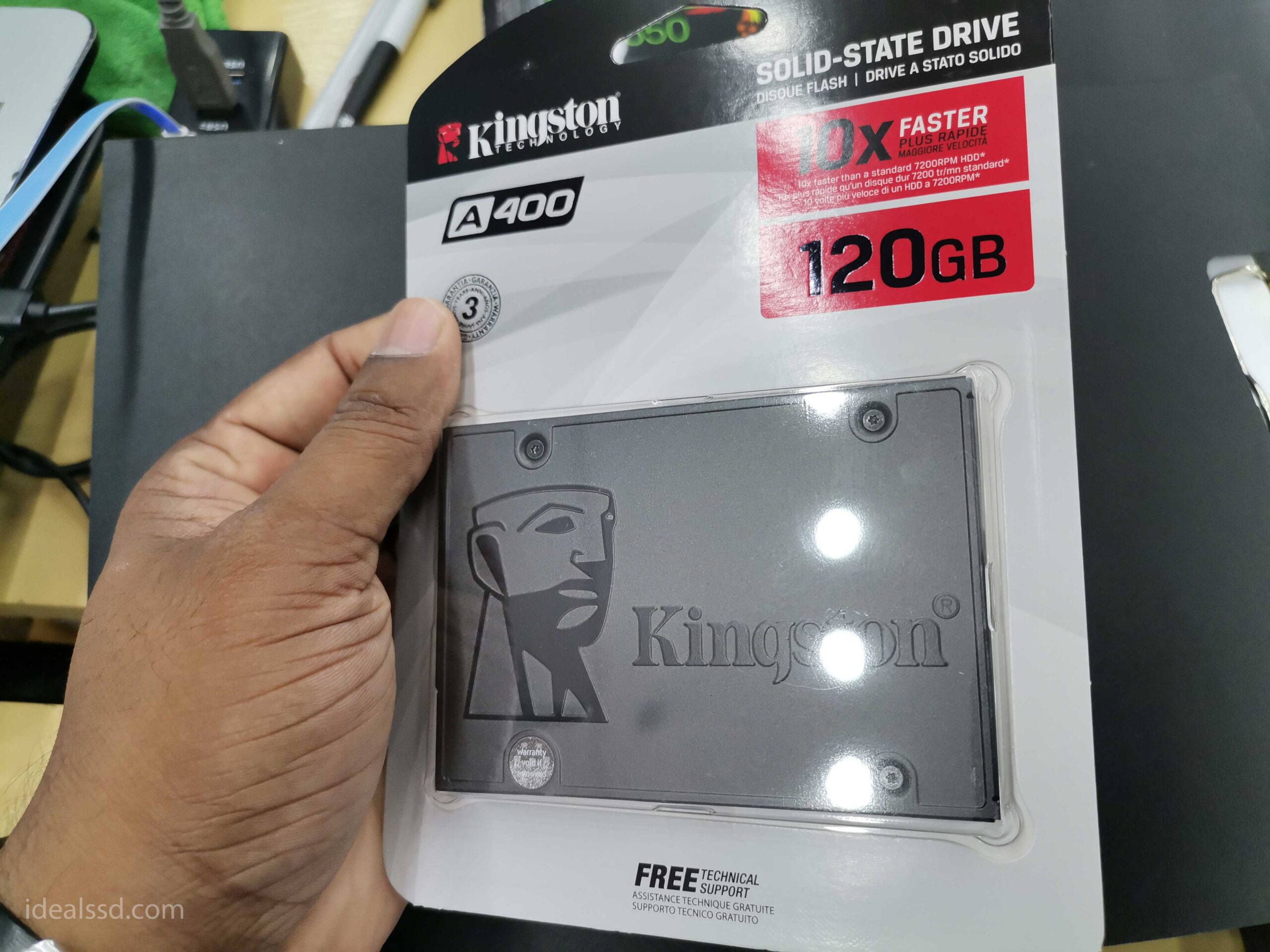
There is no doubt that SSDs have revolutionized the computer industry. They are faster, more reliable, and consume less power than traditional hard drives. But will they become obsolete in the near future? Some experts believe that SSDs may eventually be replaced by newer technologies In this blog post, I will explore the future of SSD technology and discuss whether it will likely become obsolete in the coming years.
To answer the question Even though SSDs are popular today, they might become obsolete in the future. Better technology that is better than SSD in every way might be developed in the future. SSDs are the best storage option available at the moment, so you should not wait until they become obsolete before building a new PC.
Well, before we going to talk about the obsoletion of the SSDs, we have to get an idea about the history of computer storage.
The Evolution of Computer Storage
The evolution of data storage is a fascinating topic that spans more than 90 years. In its early days, data was stored on magnetic drums and tapes. Hard disk drives gradually replaced these older technologies and eventually gave way to mixed media, flash storage, and cloud storage. Each of these storage mediums has its advantages and disadvantages, and each has been instrumental in shaping the way we store data today.
Magnetic Drums
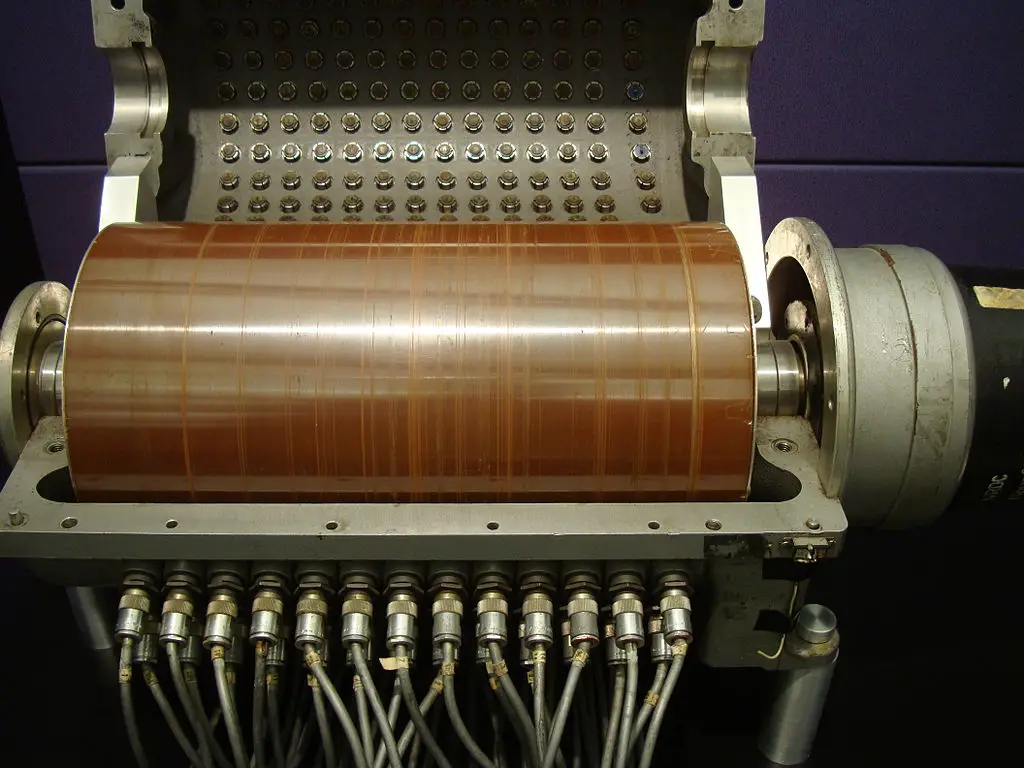
Magnetic drums were among the first methods of storing data electronically. They were large, cumbersome devices that used spinning metal discs to store information. Data was written to the discs by passing a magnetic head over them, which could be read back by reversing the process. The downside of magnetic drums was that they were slow and expensive.
Tapes
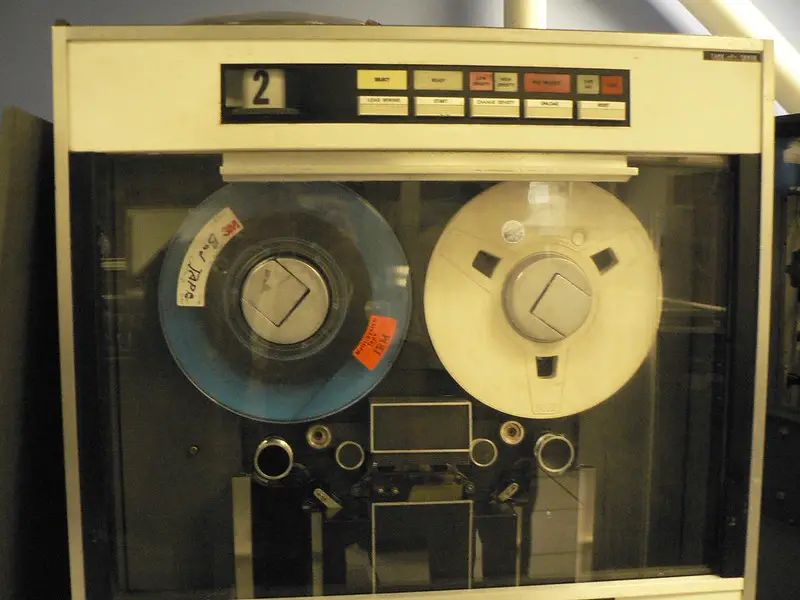
Tapes were the next significant advance in data storage. They were much faster than drums and could store more data per unit of space. Tapes were also much less expensive to produce than drums, making them a popular choice for early computers. However, tapes were also prone to errors and required regular maintenance to keep them running smoothly.
Hard Disk Drives
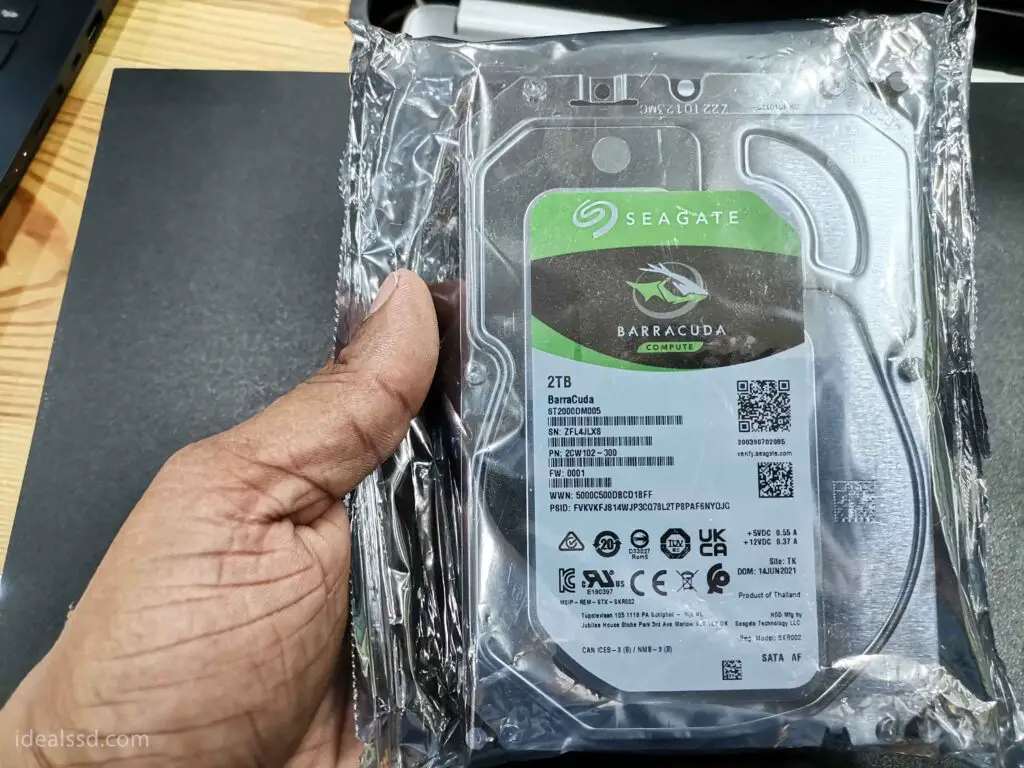
Hard disk drives (HDDs) eventually replaced magnetic drums and tapes as the primary means of storing data. They typically consist of one or more rotating disks coated with a magnetic material, which stores the data and read/write head on an arm, which accesses the data.
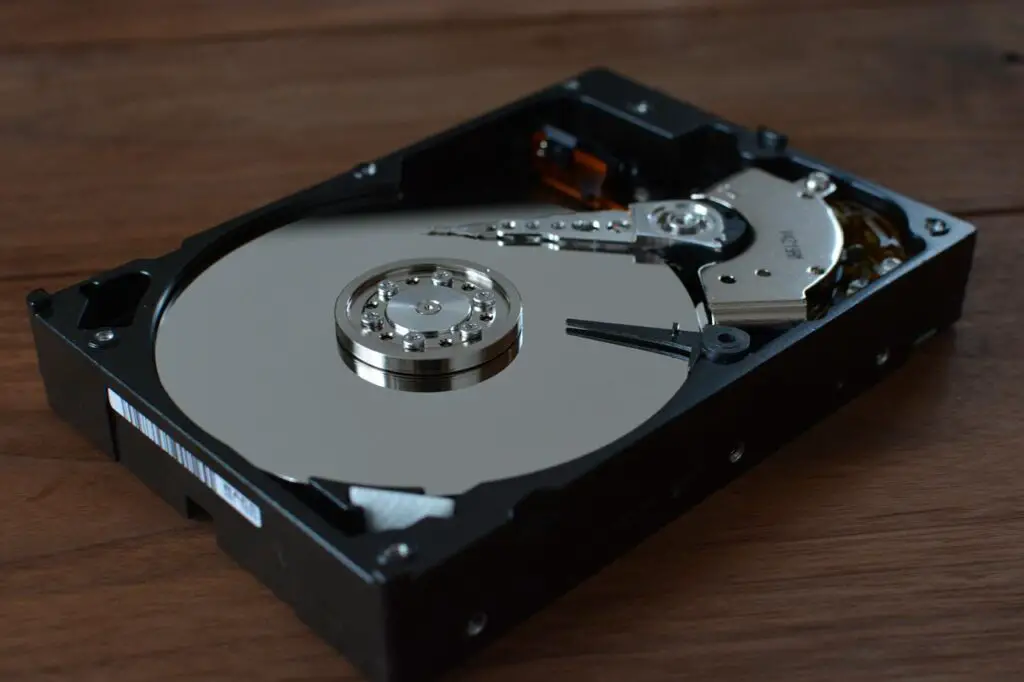
First, hard drives were invented and then patented in 1956 as an alternative to magnetic drums and tapes. HDDs offer several advantages over their predecessors, including speed, capacity, and reliability. Speed refers to the time it takes to access data stored on an HDD. Capacity is the amount of data that can be stored on an HDD.
Reliability is the degree to which an HDD can maintain data integrity under conditions of vibration, shock, temperature extremes, and other potential sources of error. HDDs soon became the standard for desktop computers and laptops due to these advantages. Thanks to HDDs, we now have quick and easy access to large amounts of digital information.
If you happened to buy a HDD today chances are you are getting a drive either from Western Digital or Seagate. Together, they make up around 98% of the market. In terms of reliability, both companies have a similar story to tell. In other words, there is not one that is significantly better than the other.
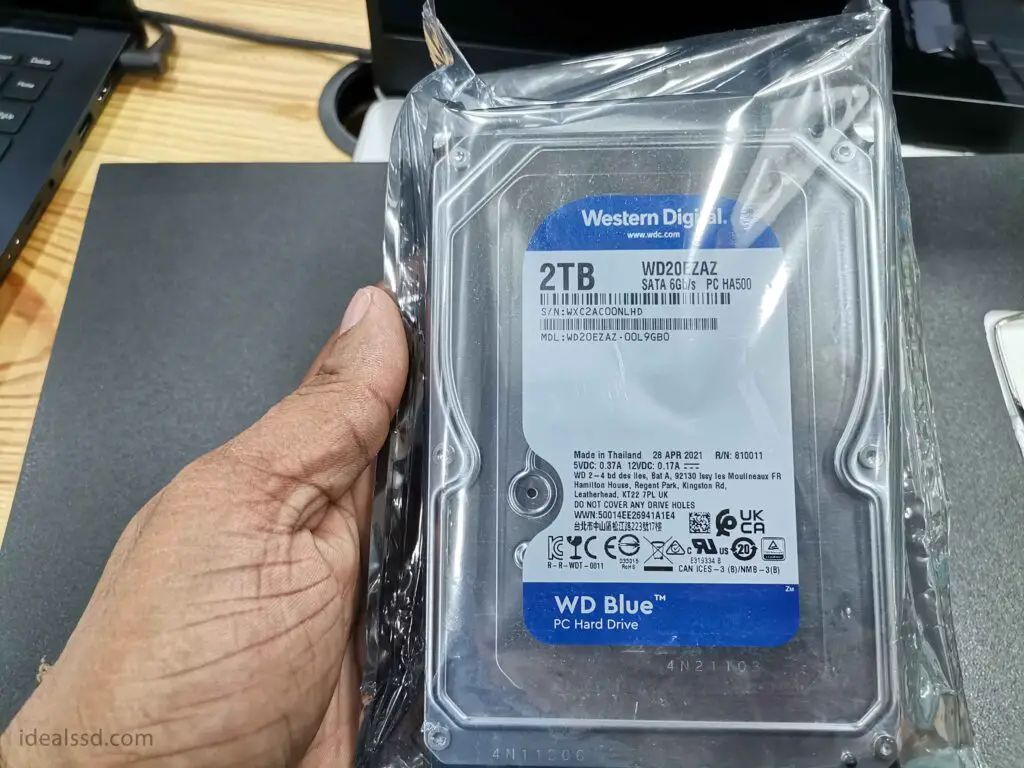
Floppy Disks
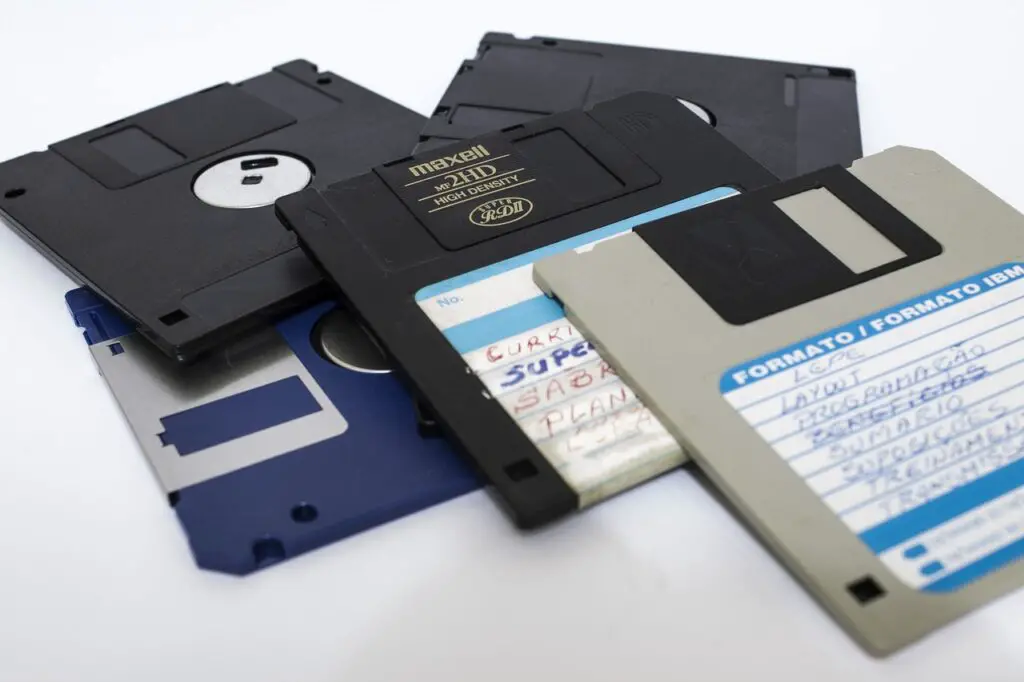
The world’s first floppy disk and disk drive were developed at an IBM facility in San Jose (CA) in 1967. It was first offered to the market in an 8-inch (20 cm) form in 1972.
Back in the day, when you wanted to save or transfer a file, you would have to use a floppy disk. Floppy disks were those circular pieces of plastic with a magnetic strip that stored data. They were relatively small so that you could fit them into your pocket, and they were also affordable. However, they had their drawbacks. They were slow, could only hold a limited amount of data (1.44 MB), and were easy to damage.
The first floppy disk drives used 8-inch disks that could store around 500KB of data. They quickly became popular because they were much faster and more reliable than cassettes and could store far more data. Over the next few years, the capacity of floppy disks increased dramatically, and the drives themselves became smaller and more affordable.
Today, floppy disk drives are largely obsolete, replaced by more modern storage technologies such as flash drives and hard drives. However, they remain an important part of computing history.
USB Flash Drives
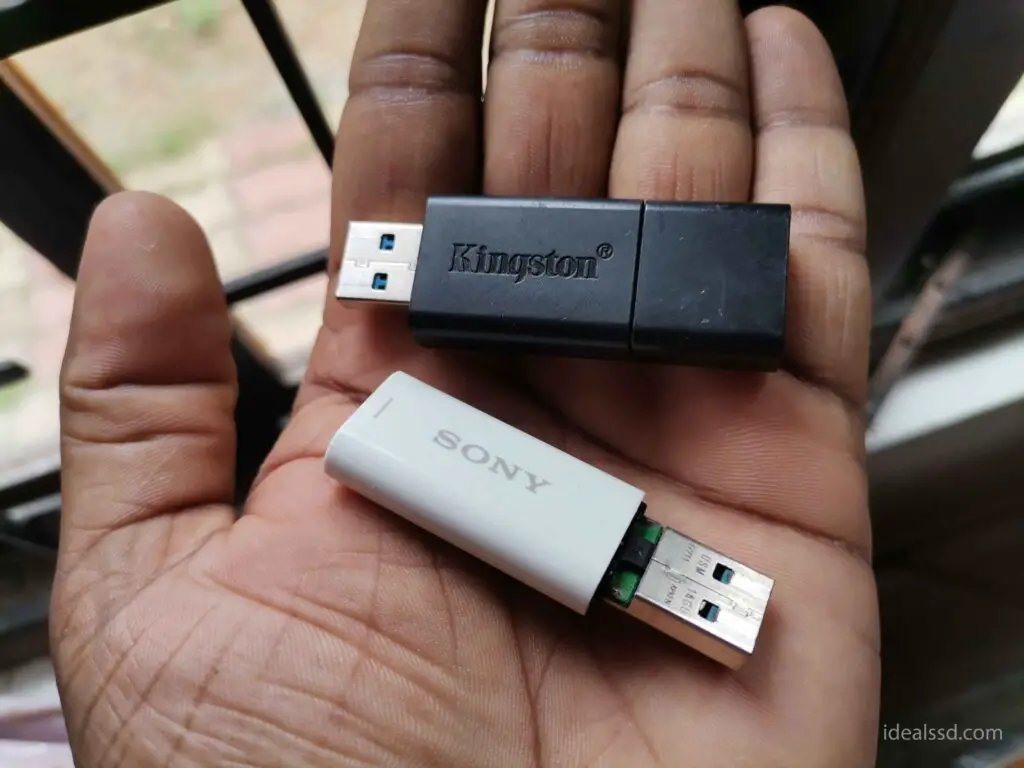
Then came USB flash drives. A USB flash drive is a small, portable device that is used for storing and transferring data. USB flash drives are much smaller than floppy disks and can store significantly more data. If you buy a device like SanDisk (See price on Amazon), it has 512GB of storage capacity.
They’re also faster and more durable. As a result, they quickly became the preferred choice for storing and transferring files. Today many reputable companies make durable flash drives that are designed to withstand everyday use. In addition, some USB flash drives come with security features that make it difficult for someone to access your data without your permission. As a result, USB flash drives offer a convenient and secure way to store and transfer your data.
CDs and DVDs
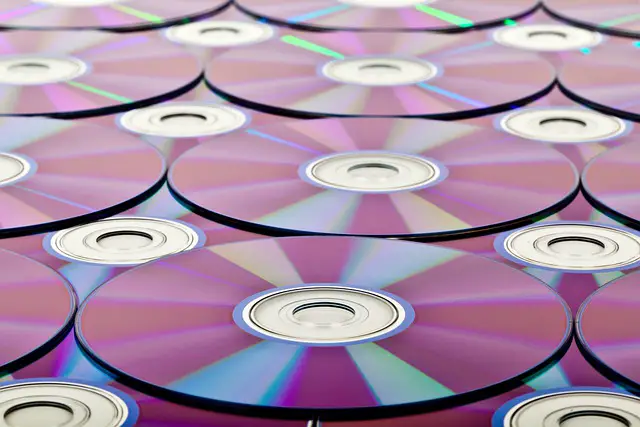
CDs and DVDs are popular storage media for a variety of reasons. They are relatively inexpensive, have a large capacity (4.7GB), and are durable enough to withstand repeated use. In addition, CDs and DVDs can be easily accessed with a computer or DVD player.
However, there are some drawbacks to using CD/DVDs as storage media. For example, they can be scratched or damaged, making them unreadable. In addition, they are susceptible to data corruption if not appropriately handled. Despite these drawbacks, CDs and DVDs remain popular choices for storing data.
LG Electronics 8X Ultra Slim Portable DVD Rewriter
Looking for an ultra slim and portable DVD rewriter that you can take with you anywhere? Look no further than the LG Electronics 8X Ultra Slim Portable DVD Rewriter.
This DVD rewriter has an 8x DVD-R writing speed and a CD-RW writing speed of 24x, making it perfect for any task you need it for. Plus, with TV connectivity and nonstop playability, this DVD rewriter is sure to become your new go-to device.
So don’t wait any longer – order your LG Electronics 8X Ultra Slim Portable DVD Rewriter today!
Portable Hard Drives
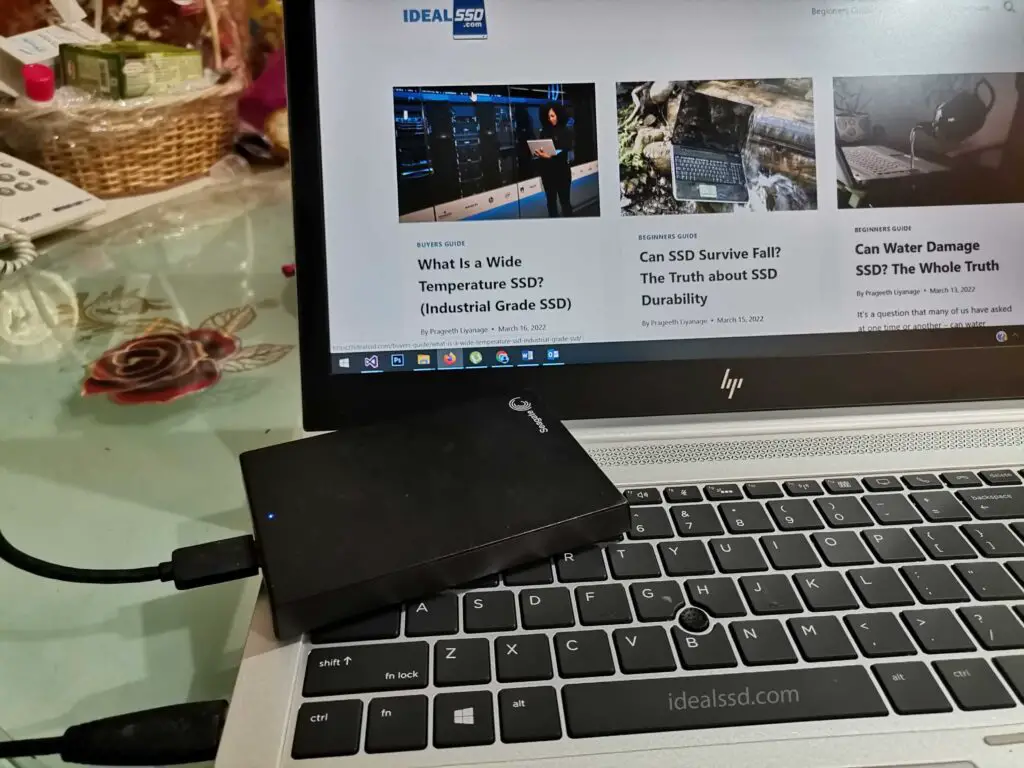
Portable hard drives are a type of storage media that offers many benefits over other storage options. The most obvious benefit is portability; portable hard drives are small and lightweight, they can be easily transported from one location to another.
Additionally, portable hard drives offer high-capacity storage (Up to 5TB and more), making them ideal for backing up large amounts of data. They also offer fast data transfer speeds, allowing you to copy or move files to and from the drive quickly.
Unlike a traditional hard drive, a portable hard drive does not require an external power source, making it ideal for use with laptop computers and other devices that are not always plugged into an AC outlet. Portable hard drives are available in various sizes, with capacities ranging from several gigabytes to several terabytes.
Prices vary depending on capacity and brand, but portable hard drives can generally be found for relatively reasonable prices. When shopping for a portable hard drive, it is important to consider factors such as capacity, compatibility, price, and warranty.
Solid-State Drives
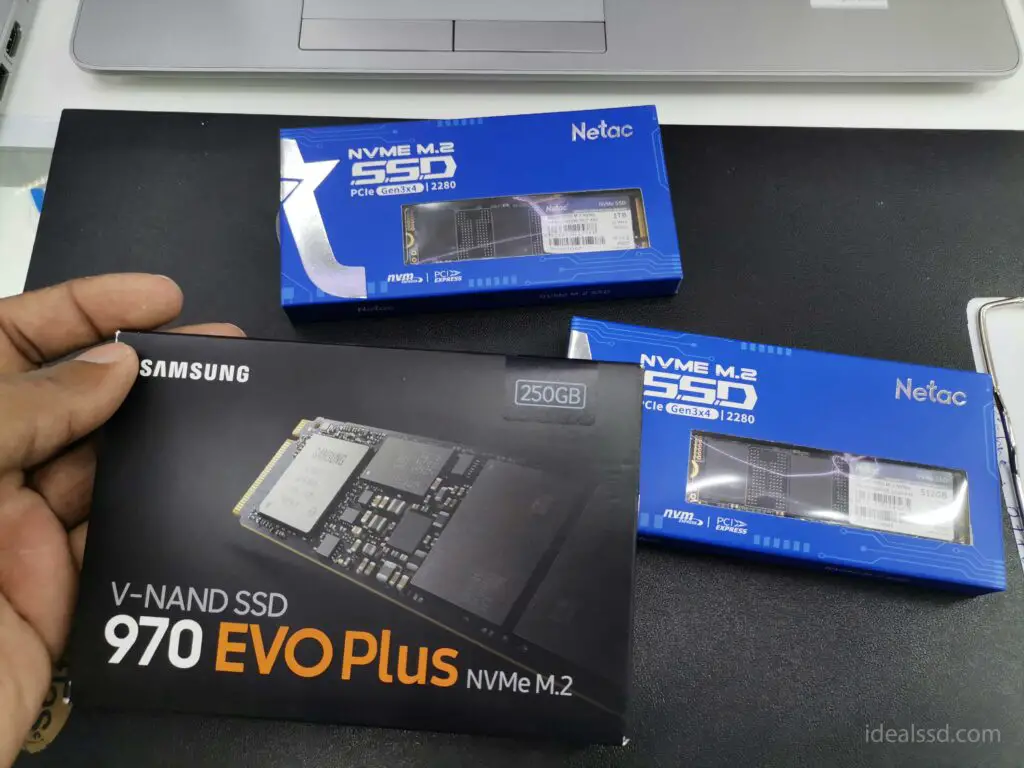
With the advent of increasingly powerful computers, solid-state drives (SSDs) storage capacity has become an important consideration for many users. SSDs are a newer storage device that uses chips instead of spinning disks to store data.
This makes them much faster than traditional hard drives and more resistant to shock and vibration. However, SSDs also tend to be more expensive than HDDs, so weighing the pros and cons before making a purchase is important.
For most users, an SSD will provide a noticeable performance boost and is worth the extra cost. However, those with mostly static data or on a tight budget may want to stick with an HDD.
Thought Regarding The Storage Evolution
It is evident from the above different types of storage media that storage media is constantly evolving. A number of media types have been replaced with new, improved versions, while others have become obsolete.
Floppy disks have been replaced by USB flash drives, CDs and DVDs have been replaced by portable hard drives and solid state drives. As for USB flash drives, they are still in use, but their storage capacity, data transfer speed, and security features have greatly improved. As a result, we can see that storage media are constantly evolving.
So the question is will SSD become obsolete?
Will SSD Become Obsolete?
Well, I would like to quote something before the answer to this question.
“The only thing that never changes is that everything changes.”
You have probably heard about the above quote. As we all know, everything changes with time, so the meaning was absolutely accurate. Technology is ever-changing, and what’s popular today may not be popular tomorrow. See the evolution of the storage I talked about earlier.
As a child, I experienced the age of floppy disks. Floppy disk drives were considered to be cutting-edge technology on that day. Having a 1.44MB floppy disk would be equivalent to having a 64GB pen drive today.
When I was a child, I remember going to a friend’s house to copy a game from a popular game collection in my country. It sega blasters game collection. This is a collection of 500 mini-games. It was not a mini back then. Also,, I remember copying the prince of persia (DOS game) game to three or four floppy disks during those times. It’s a funny memory. 🙂
Is the floppy disk drive still in use today? It is not. It is possible that you will never touch a floppy disk in your lifetime. It is due to the fact that everything changes and new technologies are developed in order to make our lives easier.
SSDs are no different. Despite its popularity today, it is not certain to remain so in the future. As a matter of fact, SSDs may become obsolete at some point in the future. Although I do not expect SSD to become obsolete anytime soon, I do believe that new technology that is better than SSD in every aspect will eventually be developed. SSDs are the best storage option available at the moment, and you should not wait until SSDs become obsolete before building a new PC.
References
- Timeline of Computer History – https://www.computerhistory.org/timeline/memory-storage/
- Computer data storage history – https://www.computerhope.com/history/datastor.htm



Problem is NAND flash chips don’t store data very well with no power.